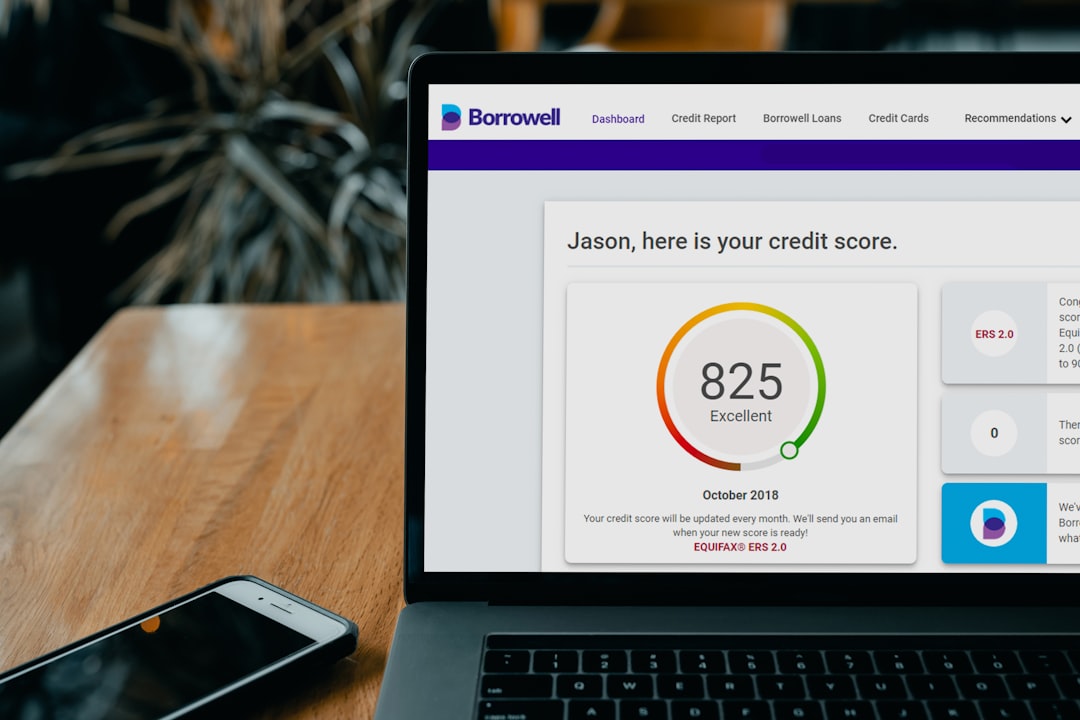Quick Glance at Surety Bonds
- An agreement between three parties: Business (Principal), an Institution or Person who requires it (Obligee), and the Bond Provider (Surety).
- Compensation provided to the obligee in case of a failure of the principal.
- They fall into three main categories, including contract, commercial, and court.
- Many industries need them to minimize financial risk and provide consumer protection.
Are you struggling to find quick, reliable, and affordable surety bond issuers? You’re not alone! As a critical tool for risk management and ensuring contractual obligations are met, surety bonds are an intricate, yet necessary, part of many business operations. They provide the financial guarantee that businesses will uphold their end of a contract, protecting customers from potential losses.
At Surety Bond Co, we understand the complexities of surety bonds and how essential they are in fostering trust in various industries. We’re proud to be part of an industry that aids in reducing financial risk, ensuring consumer protection, and promoting integrity in business practices.

This article aims to guide you through the labyrinth of surety bond issuers, unveiling top industry players and shedding light on essential aspects to consider when choosing a bond company. Whether you’re a newbie to this subject or just looking for a refresh, let’s dive into surety bonds together!
Understanding the Three Types of Surety Bonds
To make an informed decision when obtaining a surety bond, you first need to understand the different types of surety bonds available. Here at Surety Bonds Co, we primarily deal with three types of surety bonds: Contract Surety Bonds, Bid Bonds, Performance Bonds, and Payment Bonds.
Contract Surety Bonds
The most common type of surety bond is a Contract Surety Bond. This bond acts as a guarantee that a contractor will complete a construction project according to the agreed terms and conditions. When we issue a contract surety bond, we are essentially assuring the obligee (the party requiring the bond) that the contractor will fulfill their contractual obligations.
Contract surety bonds encompass several types, including Bid Bonds, Performance Bonds, Payment Bonds, and Maintenance Bonds, which we’ll delve into next.
Bid Bonds
Bid Bonds play a pivotal role in the bidding process for construction projects. They shield project owners from contractors who may submit low bids with no real intention to complete their responsibilities. If a contractor fails to proceed as agreed after winning the contract, the bid bond ensures that they will be accountable to the surety bond issuer, usually a government agency.
Bid bonds and performance bonds are a form of collateral that underwrites the agreement, ensuring that the work commences at the price indicated within the offers submitted during tender proceedings.
Performance Bonds
Performance Bonds are integral to the construction industry. They guarantee that a project will be finished as stated in its contract. If a contractor is unable to fulfill these conditions, the performance bond covers any obligations listed within the agreement and, if necessary, provides compensation to all parties involved.

So, performance bonds offer project owners a sense of security, knowing that their investment is protected against potential financial losses or damages caused by non-compliance with the contracted requirements.
Payment Bonds
Finally, Payment Bonds are contract bonds that guarantee subcontractors, laborers, and suppliers are paid for their work on a construction project. Without these surety bonds, the project owner could be held liable if payments are not made as promised, which could lead to expensive legal proceedings and delay the progress of the project.

Payment bonds are vital in ensuring that all parties involved receive their due compensation promptly, preventing the risk of liens against the work or contract agreements.
These are the most common types of surety bonds that we at Surety Bonds Co deal with. Each type serves a specific purpose, providing a layer of protection and assurance to all parties involved in a contract. In the next section, we will explore the role of banks in issuing surety bonds.
The Role of Banks in Issuing Surety Bonds
In surety bonds, banks play a crucial role. Much like us at Surety Bonds Co, banks can also serve as surety bond issuers, providing the necessary financial backing for these bonds. However, the mechanics of how banks operate in the surety sector differ significantly from traditional insurance policies.
Understanding the Bank-Surety Relationship
Banks and surety companies both operate under the regulatory oversight of state insurance departments. However, their functions in risk transfer mechanisms are quite distinct. While traditional insurance is a two-party agreement designed to manage unforeseen adverse events, surety bonds are three-party agreements designed to prevent a loss. The bank or surety company does not “assume” the primary obligation but is secondarily liable if the principal defaults on its bonded obligation.
Surety Bonds as a Form of Credit
A surety bond can be considered a form of credit, similar to a lending arrangement. The bank or surety company examines factors such as the contractor’s credit history, financial strength, experience, equipment, work in progress, management capacity, and character before determining the appropriateness and the amount of surety credit.
When a bank or surety company, like us at Surety Bonds Co, extends surety credit to a contractor, it does not expect to incur losses. This is because it expects the bonded contractor to fulfill its obligations successfully. Moreover, the bank or surety company has a signed indemnity agreement from the contractor, protecting it from any losses.
Why Banks and Surety Bonds?
Banks often become involved in the surety bond process as their financial stability and reputation can provide a sense of security and trust for all parties involved. Furthermore, banks are regulated by the state insurance commissioner, ensuring they meet minimum capital requirements, file periodic financial reports and are subject to market conduct investigations.
However, while banks may play a role in issuing surety bonds, it’s important to remember that specialized surety bond issuers like us at Surety Bonds Co offer dedicated expertise, streamlined processes, and personalized service to help you navigate the often complex world of surety bonds.
In the next section, we’ll explore some of the top surety bond issuers and what they bring to the table.
Top Surety Bond Issuers
For the novice, surety bonds can be a complex labyrinth to navigate. Fortunately, there are numerous reputable and reliable surety bond issuers in the market, each with their unique strengths. Let’s take a closer look at some of the top surety bond issuers that are known for their financial stability, industry reputation, and customer-oriented services.
American Contractors Indemnity Company
The American Contractors Indemnity Company, a subsidiary of Tokio Marine/HCC, is one of the top surety bond issuers in the industry. Headquartered in Los Angeles, California, they offer a broad selection of surety bonds catering to various business needs. Their strong financial stability and commitment to honoring their financial obligations have earned them a well-deserved reputation in the marketplace. You can reach them at [email protected].
Merchants Bonding Company
Next on our list is Merchants Bonding Company. Operating out of Des Moines, Iowa, Merchants has been in the surety business for over 80 years, making it one of the most experienced firms in the industry. Their long-standing commitment to providing quality service and their extensive knowledge of the industry has helped them foster trust and credibility among their clients.
U.S. Specialty Insurance Company
Another noteworthy surety bond issuer is the U.S. Specialty Insurance Company. As a part of Tokio Marine/HCC, they offer a wide range of surety bonds designed to meet the needs of diverse businesses. Their strong financial backing and commitment to honoring their obligations make them a reliable choice for businesses in search of surety bond issuers. You can reach them at [email protected].
Making the Right Choice
Choosing a surety bond issuer is a critical decision that can have significant implications for your business. While there are many reputable surety bond issuers in the market, it’s crucial to select one that best aligns with your business needs and financial capabilities.
That financial stability, licensing, and a company’s reputation in the industry are key factors to consider. Also, remember to verify if your chosen surety company holds the necessary licenses and authorization to operate in your state. This not only ensures that the company operates within the law but also confirms its reliability and trustworthiness.
At Surety Bonds Co, we understand the complexities of surety bonds and are here to help you navigate through them. We offer immediate approval, the ability to download and print bonds within minutes, and a streamlined process that values your time and convenience. Whether you are a seasoned business owner or a budding entrepreneur, we are committed to providing you with the most competitive rates and a hassle-free experience.
How the SBA’s Surety Bond Guarantee Program Supports Small Businesses
Small businesses, especially those venturing into major federal, state, and local contracts, often face the challenge of securing surety bonds. This is where the U.S. Small Business Administration (SBA) steps in with its Surety Bond Guarantee (SBG) Program. The program, aimed at enhancing surety credit for small businesses, acts as a lifeline for those who might otherwise struggle to compete.
Overview of the SBG Program
The SBG Program, in collaboration with surety bond issuers, provides surety bond guarantees for small businesses on projects ranging from federal, state, local, to private ones. It’s a win-win situation where the SBA’s surety partners not only guarantee bonds but also educate small businesses on the bonding process, advise on increasing bond limits, and connect them with other important business partners.
In the fiscal year 2023, bolstered by the SBG Program, small businesses across the nation bonded over $2.2 billion in contracts, marking it as the best-performing year in 25 years for guaranteeing bid and final bonds. This is clear proof of the SBG Program’s pivotal role in supporting small enterprises.
The Role of the Office of Surety Guarantees
The Office of Surety Guarantees (OSG) is the driving force behind the SBG Program. Its mission is to ensure that small businesses receive the necessary backing to compete for major contracts. The OSG has been instrumental in guaranteeing bid, performance, and payment bonds issued by participating surety companies for contracts and subcontracts up to $6.5 million.
Jermaine Perry, the OSG Director, emphasizes that the success of the SBG Program is due to the “unwavering dedication of our surety partners and agencies”. Their efforts in utilizing the SBA for bonding have been pivotal in enhancing surety credit for small businesses.
Simplified Bond Guarantee Application: QuickApp
Recognizing the need for a streamlined process, the SBA offers a simplified bond guarantee application called QuickApp. This accommodates contracts up to $500,000 with limited paperwork and speedy approvals, often within a day. This is a significant advantage for small businesses looking to secure bonds quickly.
In conclusion, the SBA’s SBG Program, alongside reliable surety bond issuers, plays a crucial role in providing financial guarantees for small businesses, thus fostering economic growth and job creation. At Surety Bonds Co, we are proud to be part of this initiative, providing small businesses the necessary support they need in their entrepreneurial journey. For more information on surety bonds and how to secure them, visit our website.
Factors Considered by Surety Companies in Underwriting
When it comes to providing surety bonds, there are several factors that surety bond issuers, like us at Surety Bonds Co, take into consideration during the underwriting process. These factors essentially help us assess the risk involved and determine the appropriate bonding rate.
Credit History
One significant factor is the credit history of the applicant. A solid credit score is vital for obtaining the best possible surety bond rates as it indicates the financial stability of a business. Companies with higher credit ratings usually have access to more attractive bonding costs. Therefore, maintaining good credit standing by paying bills promptly and keeping account balances relatively low is crucial. As an expert at Surety Bonds Co, we suggest reviewing your credit reports thoroughly from time-to-time to avoid any inaccuracies that could lead to higher bonding rates.
Financial Strength
The financial strength of a business is another key factor that surety bond issuers look at. This includes assessing elements such as the available working capital, which ultimately impacts the final bonding rate. Businesses with better financial health usually receive reduced fees, making it important for companies to maintain strong economic standing.
Experience
The length of business operation and the level of business experience also play a significant role. Established companies with more expertise in their field can expect lower rates for their respective bonds. Therefore, gaining experience and knowledge in your industry can lead to more favorable surety bond premiums.
Character
Lastly, character traits also come under scrutiny during the underwriting process. The surety company will examine aspects such as management capacity and character. This is to ensure that the business is run by reliable individuals who are likely to fulfill their contractual obligations.
In conclusion, the underwriting process for surety bonds involves a comprehensive evaluation of several factors. The aim is to accurately assess the risk involved and to ensure that the bond issued is a reliable financial guarantee. At Surety Bonds Co, we follow this thorough process to ensure that we provide our clients with the most suitable surety bond solutions. For more information, visit our website.
The Importance of the General Agreement of Indemnity (GIA) in Surety Bonds
A key component in the process of obtaining a surety bond is the General Agreement of Indemnity (GIA). This powerful legal document is a crucial step in the surety bond process and plays a significant role in protecting the surety company from potential losses.
GIA: The Backbone of Surety Bonds
The GIA is a contract between the surety company and the principal, who is typically a contractor. It obligates the named indemnitors to protect the surety from any loss or expense the surety suffers as a result of having issued bonds on behalf of the bonded principal.
This might sound a little complex, but it’s actually quite simple. When a surety company issues a bond, it’s extending a form of credit to the contractor. The GIA is a safeguard, ensuring that the surety company won’t lose money if the contractor doesn’t fulfill their obligations.
Understanding the GIA in Practice
To illustrate, let’s say a contractor is hired to construct a building. The surety company issues a bond to guarantee the contractor’s performance. If the contractor fails to complete the building, the surety company may suffer a loss. However, with the GIA in place, the contractor (or other named indemnitors) is obligated to reimburse the surety company for any losses suffered due to the contractor’s default.
The GIA is a critical component of the surety bond process, and surety companies, like us at Surety Bonds Co, typically require the principal, the individuals who own and/or control the company, and their spouses to sign the GIA before bonds are issued.
GIA: A Win-Win for All Parties
By understanding the GIA and its implications, contractors can better manage their obligations and responsibilities. The GIA provides surety companies with a layer of protection, while also ensuring that contractors are held accountable for their commitments. It is a win-win situation that ultimately benefits all parties involved: the surety company, the contractor, and the party requiring the bond.
At Surety Bonds Co, we believe in providing clear and concise information to our clients, so they fully understand the surety bond process. To learn more about the GIA or the surety bond process, visit our website. Our team of experts is always ready to help you navigate surety bonds.
Conclusion: Choosing the Right Surety Bond Issuer for Your Needs
Choosing the right surety bond issuer is a critical step in securing your business’s financial future. As we’ve discussed, the process involves careful consideration of several factors, including the financial strength of the issuer, their variety of bond types and limits, and their customer service and claims handling ability.
Financial strength is an essential factor to consider, as it indicates the issuer’s ability to fulfill its financial obligations. You can ascertain a company’s financial strength by looking at their Better Business Bureau score and credit ratings. Companies with sound finances typically receive more competitive rates due to having greater working capital, something that we at Surety Bonds Co. take into account when determining surety bond costs.
It’s also important to select a surety bond issuer that provides a variety of bond types and limits. This ensures that you can find a suitable bond for your particular needs. At Surety Bonds Co., we offer comprehensive options, including license & permit bonds, contract bonds, and commercial bonds, among others.
Lastly, don’t underestimate the importance of customer service and claims handling. A surety bond issuer with outstanding customer service and swift claims handling can make the process much smoother and less stressful for you as a business owner.
As one of our clients shared, “Surety Bonds Co. has been our trusted bonding partner for over a decade. Their expertise and personalized service have been instrumental in our business growth and success.”
We hope this guide has provided you with the necessary information to make an informed decision about your surety bond issuer. Trust and credibility are the foundation of any successful business relationship, and a reliable surety bond issuer can provide the peace of mind you need.
For more information, check out our comprehensive guides on surety bonds for small businesses and everything you need to know about surety bonds in South Carolina. If you have any further questions, don’t hesitate to reach out. Our team of experts at Surety Bonds Co. is always ready to help!





